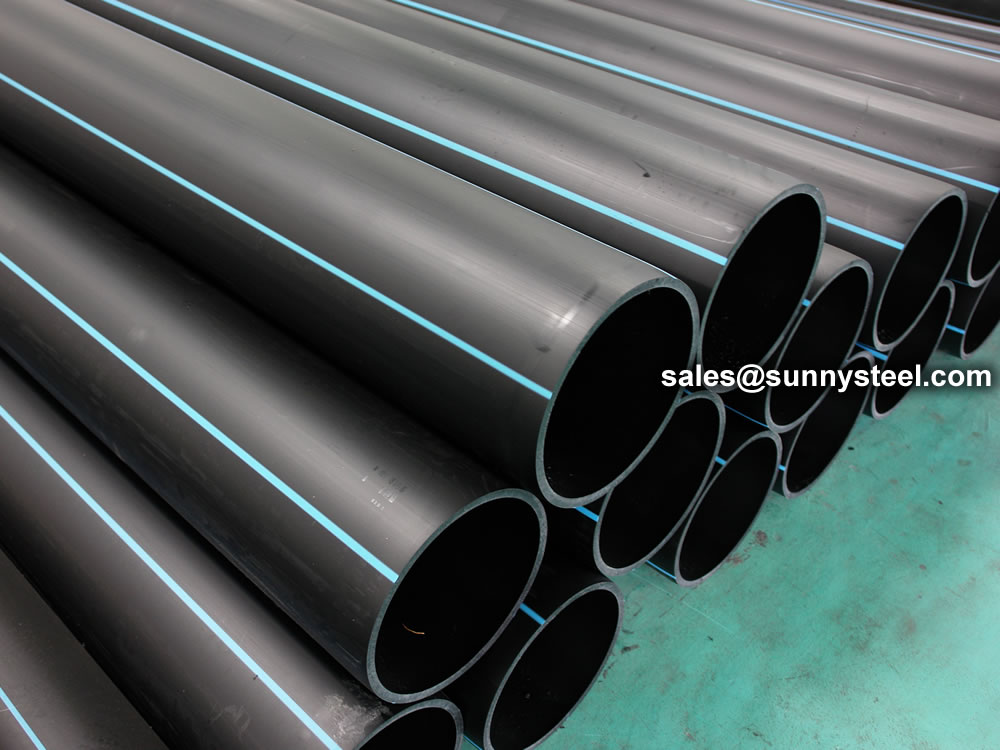custom hdpe pipe manufacturing Midland TX: Innovations Shaping the Market
Wiki Article
Understanding the Secret Benefits of HDPE Pipeline for Water and Wastewater Monitoring
The use of HDPE pipeline in water and wastewater monitoring offers numerous benefits that merit factor to consider. Its outstanding longevity and lengthy life-span make it a favored selection for several tasks. Furthermore, the material's resistance to deterioration and chemical damage boosts its reliability in numerous environments. Nonetheless, the benefits expand beyond simply long life and resistance. Exploring its cost-effectiveness and environmental influence discloses a lot more engaging reasons for its extensive adoption in modern infrastructureExceptional Resilience and Longevity

HDPE pipe stands apart for its exceptional resilience and long life, making it a favored selection in water management systems. Constructed from high-density polyethylene, these pipes can hold up against considerable pressure and anxiety, making sure dependable efficiency over time. Their durable nature permits them to withstand severe environmental problems, including temperature level changes and dirt motions, which can cause various other materials to fall short.
The life expectancy of HDPE pipes typically surpasses half a century, providing a cost-effective option for municipalities and markets alike. Furthermore, the material's lightweight buildings streamline setup, decreasing labor costs and timeframes. This longevity decreases the need for constant repair work or replacements, even more boosting its financial charm.
In water management applications, the dependability of HDPE pipes indicates less disruptions and improved solution connection, making them indispensable to lasting infrastructure advancement. The combination of durability and long life strengthens HDPE's function as a keystone in reliable water management options.
_-_Post_di_Facebook_-_Dimensioni_personalizzate_(1)_60cafdf20856f.png)
Resistance to Rust and Chemical Damage
While many materials surrender to corrosion and chemical damage over time, HDPE pipes display remarkable resistance, making them ideal for various water administration applications. This resilience comes from the molecular structure of high-density polyethylene, which is naturally non-reactive and does not rust like metals or weaken from exposure to rough chemicals. As an outcome, HDPE is highly efficient in environments with hostile materials, such as wastewater systems that may include acids, bases, and natural solvents.
Additionally, HDPE pipes can hold up against environmental variables such as dirt acidity and saline problems, further enhancing their viability for diverse applications (American Plastics HDPE Pipe for Oilfield). Their capacity to keep structural integrity gradually minimizes the risk of leakages and failings, which is essential in making sure the safety and security and reliability of water distribution and wastewater administration systems. The resistance to deterioration and chemical damages considerably adds to the overall effectiveness and longevity of HDPE piping solutions.
Cost-Effectiveness and Financial Benefits
When considering the financial ramifications of water monitoring systems, the cost-effectiveness of HDPE pipelines ends up being obvious. These pipelines supply reduced installation and upkeep costs compared to standard products like metal or concrete. Their light-weight nature streamlines transport and installation, resulting in lowered labor costs. Additionally, HDPE pipes show a lengthy life expectancy, often surpassing 50 years, which converts to less substitutes and lasting savings.The resistance of HDPE to deterioration and chemical damage decreases the demand for pricey repair services and replacements. The pipelines likewise support reliable water flow, reducing power prices connected with pumping systems. By minimizing leakages and water loss, HDPE pipelines add to significant financial advantages for districts and industries alike. On the whole, the first financial investment in HDPE piping can yield significant monetary returns over the life-span of the water administration system, making it a sensible selection for lasting infrastructure development.
Ecological Sustainability and Decreased Effect

Convenience and Flexibility in Installment
Due to their one-of-a-kind residential properties, HDPE pipes provide exceptional versatility and versatility in installation, making them appropriate for a wide variety of applications. Their lightweight nature permits less complicated handling and transport, decreasing labor expenses and setup time. HDPE pipelines can be bent and shaped to fit different surfaces and job demands, which is especially beneficial in testing settings.Furthermore, their resistance to corrosion and chemical damages enables installment in varied settings without the need for specialized protective finishes. The ability to fuse joints creates a constant, leak-free system, improving the overall honesty and reliability of the installation. HDPE's adaptability likewise fits ground activity, decreasing the threat of damage in areas prone to changing dirt. Overall, these qualities make HDPE pipelines not only flexible but additionally a favored option for water and wastewater monitoring systems.
Often Asked Questions
How Does HDPE Pipe Contrast to PVC in Water Management Applications?
HDPE pipeline offers exceptional flexibility, resistance to corrosion, and longevity contrasted to PVC. Its check out here lighter weight promotes simpler setup, while its lengthy lifespan reduces replacement costs, making HDPE a recommended choice in water administration applications.What Is the Lifespan of HDPE Pipeline Under Common Conditions?
Under typical problems, HDPE pipelines can have a life expectancy varying from 50 to 100 years. Their sturdiness and resistance to corrosion add to their lasting efficiency in different applications, making them a reputable option for navigate to this site framework.Are HDPE Piping Recyclable After Their Service Life?
Yes, HDPE pipes are recyclable after their solution life. Pipe Manufacturing Midland TX. They can be processed and repurposed right into new items, greatly minimizing ecological impact and advertising sustainability within the sector, making them an eco-friendly selection for piping remediesWhat Is the Installment Process for HDPE Piping?
The installation procedure for HDPE pipes includes site preparation, trenching, pipe combination or mechanical joining, backfilling, and stress testing. Appropriate strategies guarantee a sturdy and reliable system for transferring water and wastewater properly.Can HDPE Pipeline Be Used for Both Drinkable and Non-Potable Water Solutions?
Yes, HDPE pipes can be made use of for both safe and clean and non-potable water systems. Their flexibility, resilience, and resistance to corrosion make them ideal for different applications, making sure safe and reliable transportation of water in various contexts.Report this wiki page